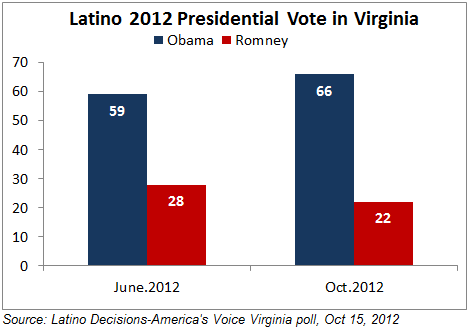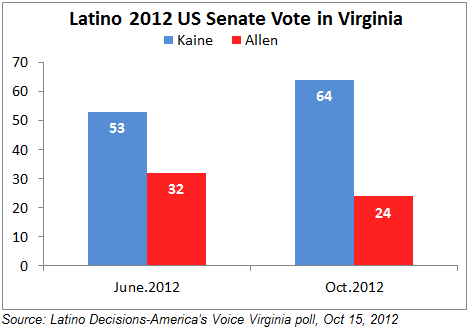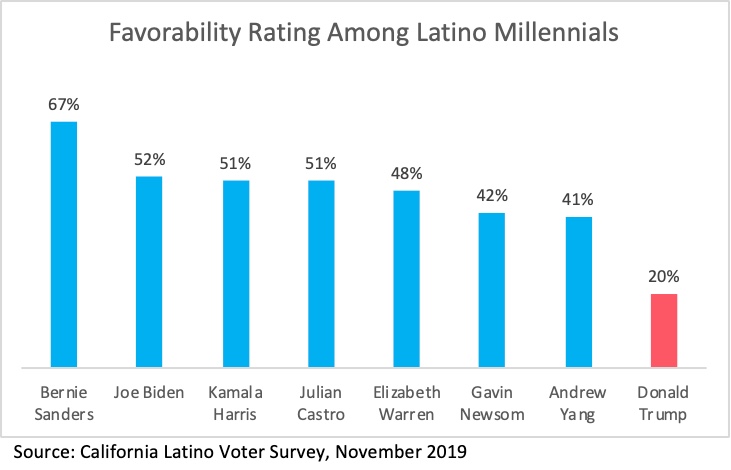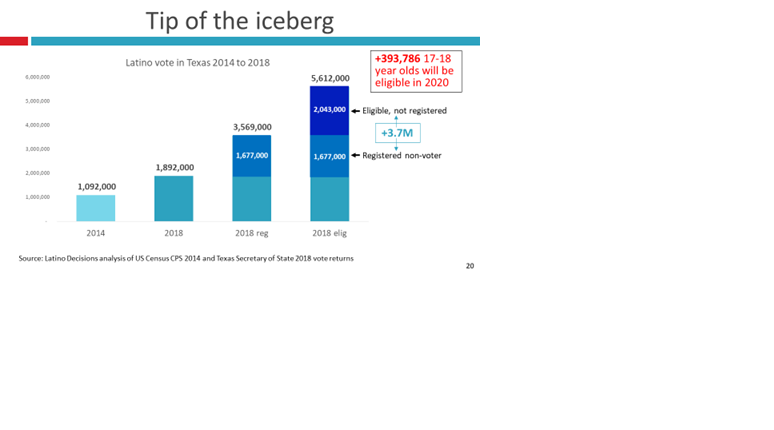According to the Real Clear Politics average of polls in Virginia, Barack Obama leads Mitt Romney 48.4 to 47.6, a gap of less than 1%. In the race for U.S. Senate the most recent poll gives Tim Kaine a 48 to 47 lead over George Allen. With two critical elections both separated by just 1 percent Latino voters may prove decisive in both the Presidential and Senate contests in the Old Dominion State. From 2000 – 2010 the number of Latino eligible voters grew by 76% in Virginia, outpacing all other groups in the electorate.
October 15, at a live streamed panel held at George Mason University national political analysts, advocates, and community leaders from Virginia discussed how Latino voters and the immigration issue will shape the presidential and Senate races in this state and beyond. Michael McDonald, a national expert on voter participation, and Professor of Government and Politics at GMU, teamed with Latino Decisions and America’s Voice to release fresh polling of Latino voters in Virginia. [Full Virginia Poll Results Here]
The poll found 66% of Virginia Latinos plan to vote for Obama compared to 22% for Romney. In the Senate race, 64% plan to vote for Kaine and 24% for Allen. In Virginia and at the national level, Latino and new citizen voters are changing politics. With immigration at the top of the list of issues these voters want addressed, it’s no surprise that Republican candidates who have embraced hardline positions – including Republican presidential nominee Mitt Romney and Senate nominee George Allen — are faring poorly with Virginia Latinos. By contrast, the embrace of immigrants and immigration reform by both President Barack Obama and Senate candidate Tim Kaine have played a key role in Latino support for Democrats in presidential, Senate and House races.


Professor Michael McDonald, Associate Professor at George Mason University, said: “Immigration is a personal issue that affects Latinos’ attitudes toward candidates even if they don’t explicitly name immigration as one of the most important issues facing the country. The new poll shows the importance of the new deferred action policy to Latino voters in Virginia–and especially undecided voters. With undecided voters expressing more enthusiasm for Obama after hearing about his deferred action policy and less enthusiasm for Romney after hearing about his plans to halt the program upon taking office, it’s clear that opposing this policy is a net negative for candidates who want to appeal to the Latino vote.”
Matt Barreto, principal at Latino Decisions and an assistant professor at the University of Washington, said: “President Obama’s decision in June to grant deferred action to DREAMers marked a ‘turning point’ among Latino voters around the country, making them significantly more enthusiastic about voting in November—and national polling results understate the level of enthusiasm among Latino voters in battleground states like Virginia, who are more engaged than Latinos in less-contested states like California and Texas. The growing population of Latino voters in Virginia is both more enthusiastic about the election than most Latinos, and more likely to decide the outcome of the very close presidential and Senate races here.”
Among the poll’s findings:
Virginia Latinos Favor Democrats by Wide Margins
- In the presidential race, 66% of Virginia Latinos said they will vote for President Obama, while 22% said they will vote for Romney and 7% are undecided.
- In the U.S. Senate race, 64% of Virginia Latinos said they will vote for Tim Kaine, while 24% said they will vote for George Allen and 12% are undecided.
- In addition, 62% of Virginia Latinos said they will vote for the Democratic candidate in their U.S. House race, while 19% will vote Republican and 18% are undecided.
Candidates’ Immigration Positions Matter to Virginia Latinos
- 64% of respondents said that immigration was “the most important issue” or “one of the most important issues” in their voting decisions this year.
- After hearing about President Obama’s deferred action policy, 57% of respondents said that they were “more enthusiastic” about voting for Obama and 8% said that they were “less enthusiastic.” Meanwhile, after hearing about Mitt Romney’s recent announcement that he would not revoke deferred action for DREAMers whose applications are approved under Obama but would stop approving applications for relief once he is elected, 13% of respondents said that they were “more enthusiastic” about Romney and 43% of respondents said that they were “less enthusiastic.”
- After hearing about Senate candidate Tim Kaine’s support for the DREAM Act, 65% of Latinos said they were “more enthusiastic” about Kaine and 6% said they were “less enthusiastic.” After hearing about George Allen’s opposition to the DREAM Act and proposal to build a fence along the border, 8% of respondents said they were “more enthusiastic” about Allen and 49% said they were “less enthusiastic.”
Immigration is Not Just a Policy Issue: It’s Personal
- 48% of Virginia Latinos said that immigration was the most important issue facing the Latino community that Congress and the President should address, while 47% said the same about the economy, jobs, and unemployment.
- 66% of Virginia Latinos know someone who is undocumented, and 54% know someone who may be eligible for the DREAM Act.
- When asked how enthusiastic they are about voting in the election this year,” 73% of respondents said that they were “very enthusiastic” about voting in the upcoming election.
- In a separate question that asked “would you say you are more enthusiastic about voting in 2012, or that you were more enthusiastic about voting back in 2008?” 68% said that they were “more enthusiastic” about voting in 2012 than they were about voting in 2008.
According to Vanessa Cardenas, Executive Director of Progress 2050 Action at the Center for American Progress Action Fund: “The youth and diversity of Virginia’s Latino community distinguishes it from many other Latino communities around the country, and the immigrant experience is especially close to Latinos’ hearts here. In the last few years, Latinos witnessed a very ugly debate around anti-immigrant ordinances in Prince William County that caused many Latinos to leave the county, devastating local business. This has taught Latino voters here that immigration and the economy are not only fundamental issues for their community, but that part of fixing the economy is welcoming immigrants.”
Alfonso Lopez, a delegate in the Virginia House of Delegates, added that “Since 2000, Latino voter participation in the Commonwealth of Virginia has gone up between 1 and 3 percent every election cycle. But the legislation that the House of Delegates has put forward has been decidedly anti-immigrant. Legislators who think they can succeed politically by demonizing the immigrant community have proposed bills that would turn public schools into immigration enforcers, keep valedictorians out of public colleges, and deter victims from reporting crimes. In the upcoming session, the legislature will consider an Arizona-style bill to require immigrants to carry ID with them at all times—and the small minority of pro-immigrant and Democratic legislators will have more difficulty stopping it than we had in the past. These numbers are incredibly heartening, because demographic shifts are coming to Virginia, and will wipe out the effects of the short-sighted anti-immigrant politicking we see now.”
Frank Sharry, executive director of America’s Voice, said, “While Virginia isn’t traditionally a state where Latino voters have held a lot of sway, with this year’s extremely tight race in both the Presidential and Senate contests, and a rapidly growing number of Latino voters in the northern Virginia region, these voters are poised to play a decisive role in both races. Despite Govenor Romney’s surge in national polls in recent weeks, his numbers with Latino voters are at a dismal 22 percent. For Virginia’s Latino voters, two-thirds of whom report knowing an undocumented immigrant, this issue is personal, and Romney’s far right position endorsing ‘self-deportation’ could end up losing him this battleground state.”


